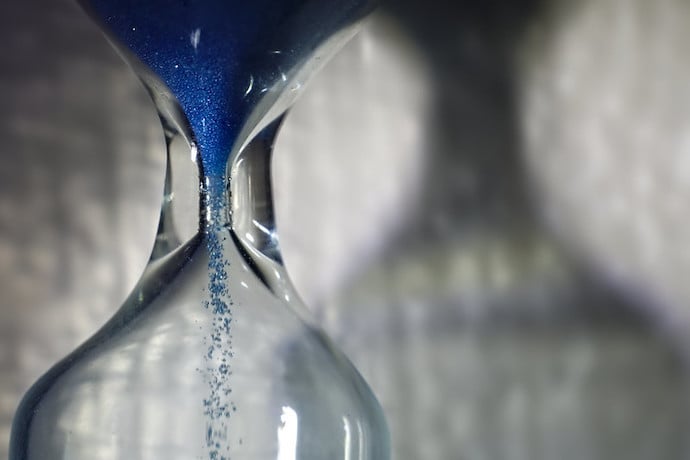There’s at least two ways to live our lives, by measuring time and by ignoring time. It can be stressful to have to wake up early for school, for example. Or sit through an hour long class. And while it can feel wonderful to lie around all afternoon, it can turn boring as the hours pass.
Time is something humans created, perhaps to accomplish important tasks as a group. Animals also behave according to regular patterns and so tracking time can be the difference between eating and starving.
Until recently, people measured time based on the earth’s rotation and its annual journey around the sun. Sundials and water clocks were the earliest technologies used to measure time. Today time is measured by the wavelengths of atoms. Turns out some atoms have measurable patterns more regular and accurate than the rotation of the earth.
And while we think of the length of a second or a minute or an hour as fixed, not likely to change, there have been times when humans adjusted their calendars by hours and days. And some calendars, like the Jewish calendar which is based partly on the 29 day cycle of moon phases, have not adjusted much over thousands of years.
During the French Revolution, in 1793, people came up with a completely different set of names for months and lengths of time. Instead of 60 seconds in a minute, 60 minutes per hour, and 24 hours to a day, the French used 100 seconds per minute, 100 minutes per hour, and 10 hours per day. They changed back after 17 months because it was too confusing and costly to change how people thought about time.
Sundials
Probably the oldest way to keep track of time is to place a stick in the ground and then use the direction of its shadow to measure time. The Egyptians, Greeks, and Romans all used sundials. And you can find sundials in use today. Accuracy, however, depends on distance from the equator and time of year, among other factors. Rainy days make sundials unusable, too.
Sand Clocks
An hourglass uses sand passing from two vertical bulbs through a narrow channel to measure time. The first hourglass appeared in the 700s AD in Chartres, France. However, the Greeks may have used them around 300 BC. Hourglasses were useful on ships because the motion of a ship didn’t affect the passage of sand, unlike water clocks which were affected by ship motion.
Water Clocks
A water clock
is any regulated flow of liquid into or out of a pot or other vessel. Time is measured by how quickly or slowly water appears or disappears. Egyptians in 1600 BC used them. And there’s a long history of very elaborate water clocks in the Middle East, some built by Al-Jazari who also built mechanical clocks.
Mechanical Clocks
Today when we think of clocks, we think of mechanical clocks and digital clocks. Mechanical clocks use springs and gears to rotate hour and minute hands at a set speed. Digital clocks imitate this process but with numbers and electronics. Mechanical clocks have been in use for at least a thousand years.
Unix Time
Computers measure elapsed time in seconds based on an arbitrary date of January 1, 1970. This ensures software can capture, use, and express dates with accuracy across computers.
Atomic Clocks
To date, the most accurate way to measure time is with an atomic clock that measures wavelengths of a stable atom. Recently, however, scientists have discovered that the elevation of the atom being measured impacts the length of a second. Atoms measured in the mountains have a slightly different wavelength than when measured at sea level.
Learnmore
History and Science of Hourglasses
https://stuffkidslove.net/sand-timers-guide/
Hourglass
https://en.wikipedia.org/wiki/Hourglass
Water Clock
https://en.wikipedia.org/wiki/Water_clock
Unix Time
https://en.wikipedia.org/wiki/Unix_time
Gregorian Calendar
https://en.wikipedia.org/wiki/Gregorian_calendar
Hebrew Calendar
https://en.wikipedia.org/wiki/Hebrew_calendar
Islamic Calendar
https://en.wikipedia.org/wiki/Islamic_calendar
French Republican Calendar
https://en.wikipedia.org/wiki/French_Republican_calendar
Decimal Time in France
https://en.wikipedia.org/wiki/Decimal_time#France
History of Timekeeping Devices
https://en.wikipedia.org/wiki/History_of_timekeeping_devices

